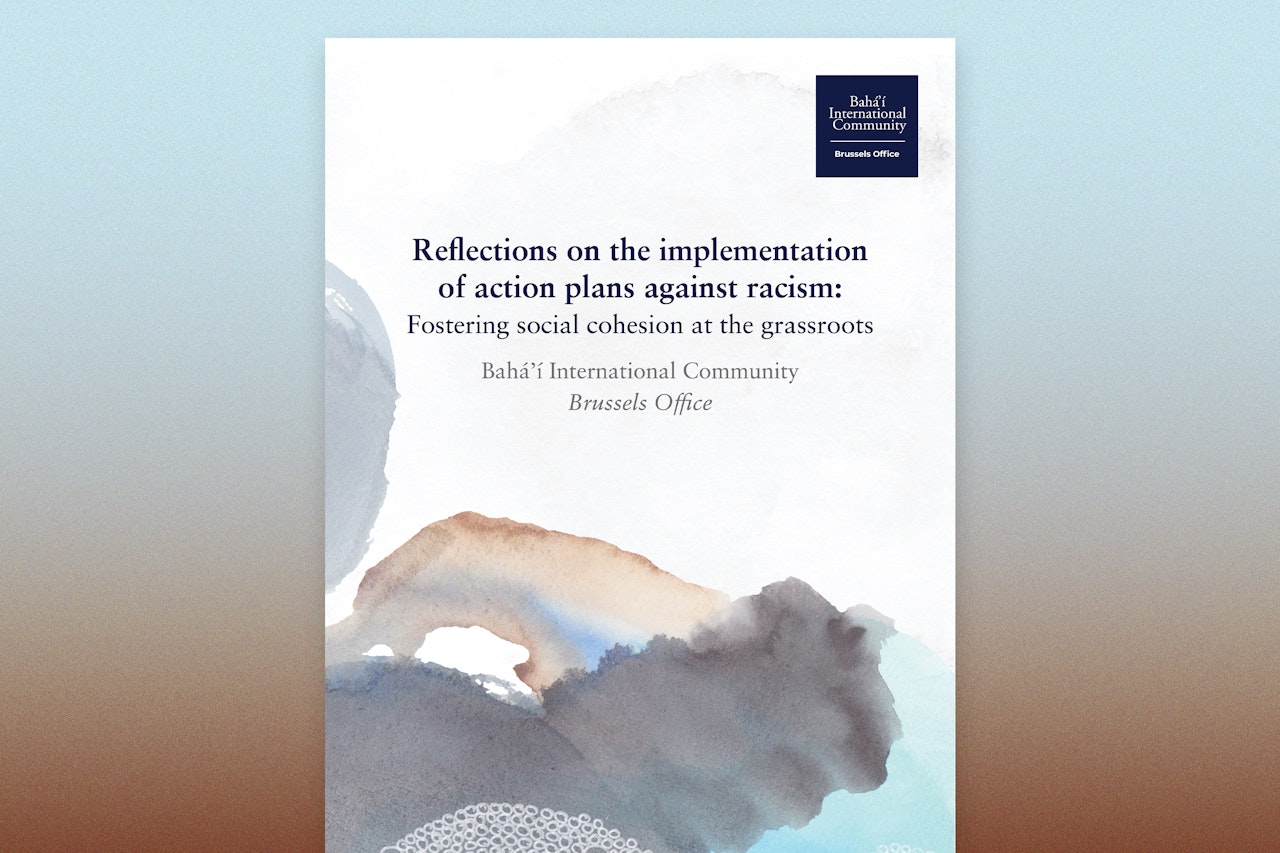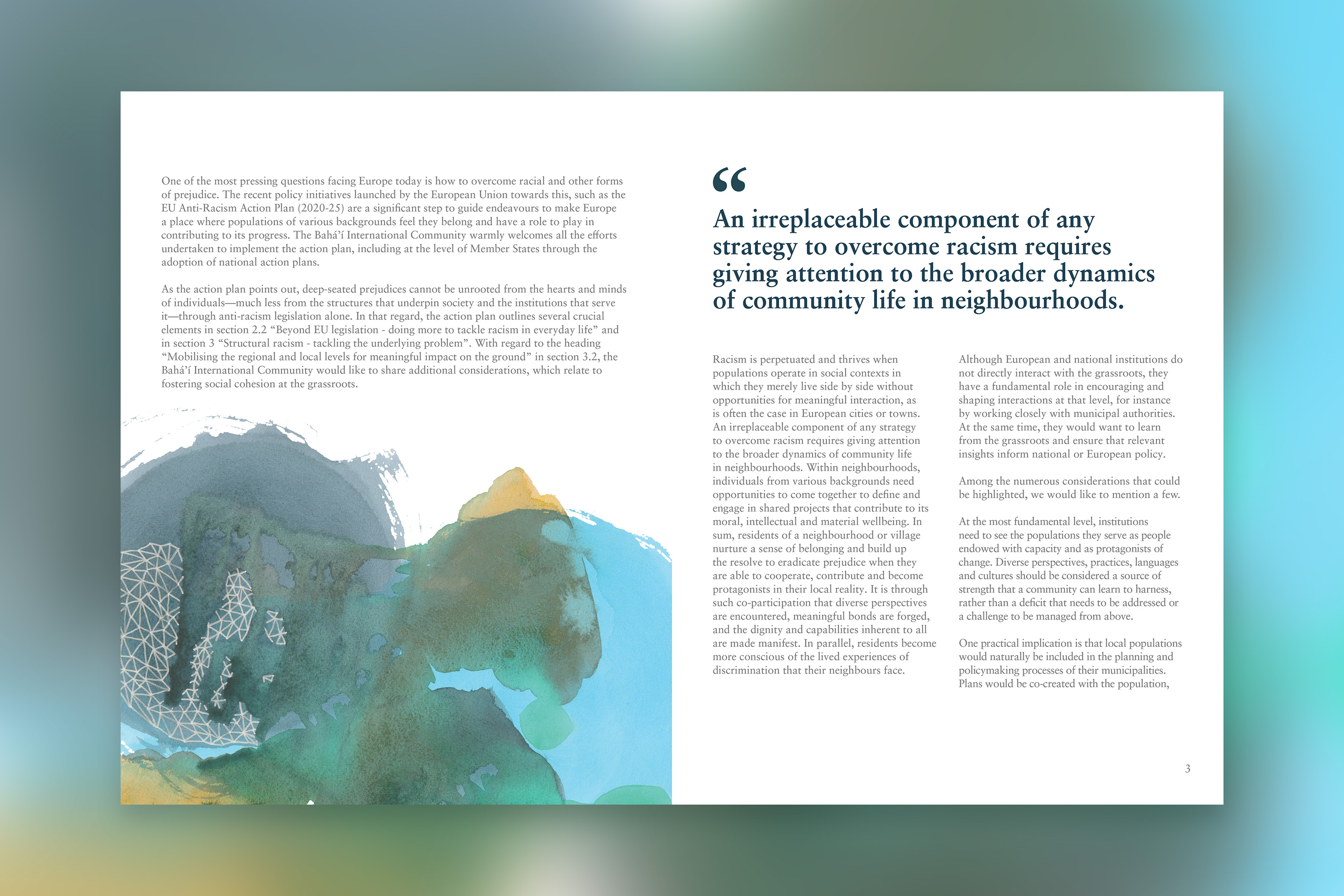BIC BRUXELLES — Une nouvelle déclaration du Bureau de Bruxelles de la Communauté internationale bahá’íe (BIC) explore l’une des questions les plus pressantes auxquelles l’Europe est confrontée aujourd’hui : comment surmonter les préjugés raciaux et les autres formes de préjugés.
La déclaration, intitulée Réflexions sur l’implication des plans d’action contre le racisme : Favoriser la cohésion sociale à la base, a coïncidé avec la conférence de l’Union européenne (UE) qui s’est tenue la semaine dernière à Stockholm, en Suède, sur la mise en œuvre des plans d’action des États membres contre le racisme. Ces plans font suite à l’adoption du Plan d’action de l’UE contre le racisme 2020-2025, annoncé peu après les manifestations de 2020 aux États-Unis et dans le monde, qui réclamaient la justice raciale.
La déclaration du BIC souligne que l’adoption par les États membres de l’UE de plans d’action nationaux reconnaissant la nécessité de lutter contre les préjugés est une étape positive. Cependant, la déclaration note que « les préjugés profondément ancrés ne peuvent pas être déracinés du cœur et de l’esprit des individus – encore moins des structures qui sous-tendent la société et les institutions qui la servent – par la seule législation antiraciste ».
Sur ce point, Rachel Bayani, du Bureau de Bruxelles, souligne que la lutte contre les inégalités et le racisme dans les villes et villages européens de plus en plus diversifiés nécessite un examen attentif de la dynamique de la vie communautaire au niveau local.
« Parvenir à l’harmonie à la base est essentiel pour vaincre le racisme à tous les niveaux de la société, dit-elle. Si les gens aspirent simplement à vivre côte à côte sans rechercher l’unité et la cohésion, alors les attitudes néfastes persisteront. »




